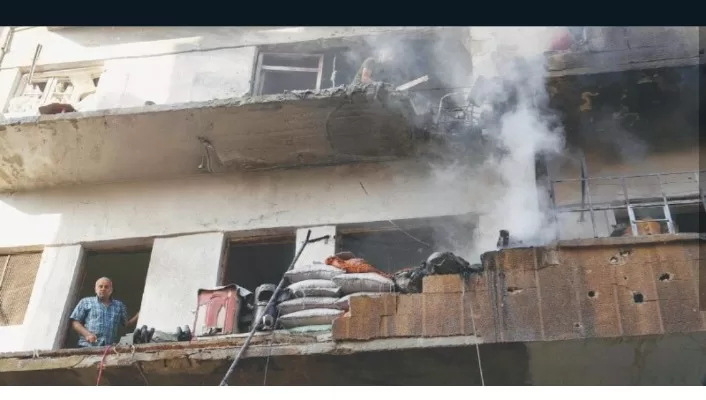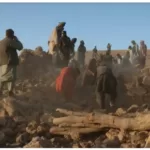In a significant escalation of the regional conflict, Turkish forces have confirmed the elimination of 58 Kurdish militants in a series of overnight offensives targeting militant strongholds in northern Syria. The Turkish Defence Ministry made this announcement on Saturday, as tensions flared nearly a week after a bomb attack in the capital city of Ankara.
Following the bombing incident in Ankara, which resulted in two police officers wounded and the death of the two attackers, Turkey declared all entities associated with the outlawed Kurdistan Workers Party (PKK) militia and the Syrian Kurdish YPG militia as “legitimate targets” for its military operations. The PKK had claimed responsibility for the bombing, asserting that the attackers had crossed into Turkey from Syria. However, the US-backed Syrian Democratic Forces (SDF), a coalition primarily led by the YPG militia, vehemently denied this claim.
Since the bombing, Ankara has unleashed a barrage of airstrikes and ground-based assaults against militant targets situated in northern Syria and Iraq, while simultaneously intensifying security measures within its own borders.
The Defence Ministry’s statement emphasized that the operations, conducted under the banner of self-defense rights, had “neutralized” 58 militants in the targeted region. It is worth noting that “neutralized” in this context is a euphemism used to signify the killing of militants. Just the day before, the ministry had confirmed that Turkey’s military had executed airstrikes in northern Syria, obliterating 15 militant targets where it was believed militants were holed up.
In an unrelated development, Turkey’s Interior Minister, Ali Yerlikaya, disclosed that police forces in the eastern province of Van had apprehended six individuals suspected of having links to the PKK and were allegedly plotting an attack. In the aftermath of the Ankara bombing, authorities have undertaken extensive raids and operations throughout the country, leading to the apprehension of numerous individuals.
President Tayyip Erdogan, speaking at his ruling AK Party’s congress in Ankara, reiterated his resolve to combat terror relentlessly, stating that Turkey “may suddenly come one night.” This phrase has been frequently employed by Erdogan in the context of military actions against militants in Syria and Iraq. Erdogan affirmed, “We will implement our strategy of ending terror at its root with determination, and hold the PKK, FETO, and Daesh to account over every drop of blood they have spilled.” Here, “FETO” refers to the network of US-based cleric Fethullah Gulen, whom Ankara accuses of orchestrating a failed coup attempt in 2016, and “Daesh” signifies the militant Islamic State group.
In response to the recent developments, Turkish and US officials have engaged in a series of discussions. Turkey has conveyed its intention to enhance non-conflict mechanisms with the parties operating on the ground, while also reiterating its commitment to continue targeting militants in both Syria and Iraq.
In a separate development, government forces launched artillery shelling targeting multiple locations in rebel-held northwest Syria. This indiscriminate shelling resulted in the tragic loss of seven civilians, including four children, as reported by the Syrian Observatory for Human Rights. Among the casualties, three civilians, including two children, lost their lives during the shelling of a market and residential areas in the city of Idlib, while two more children were fatally struck in the Idlib countryside.







